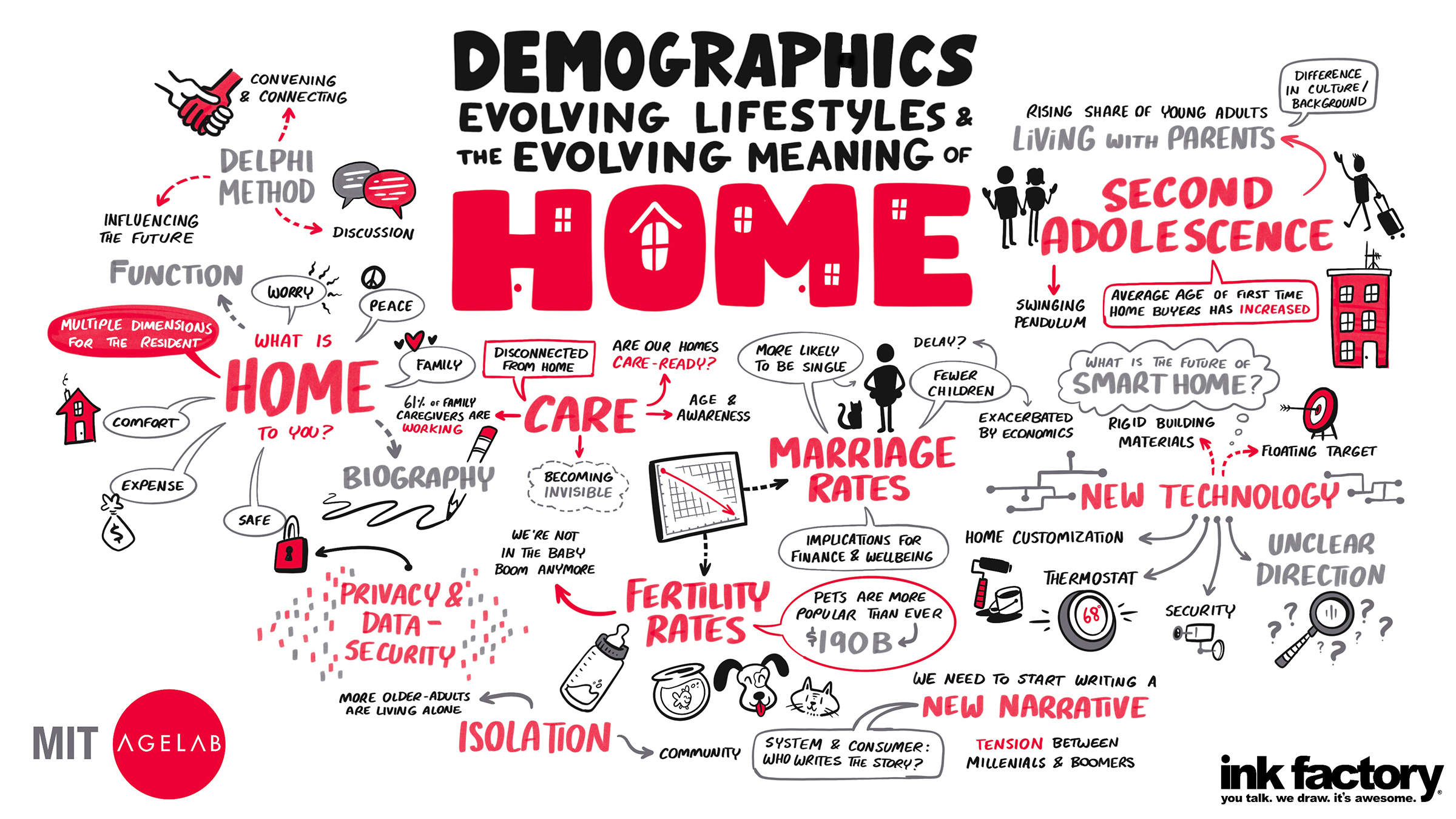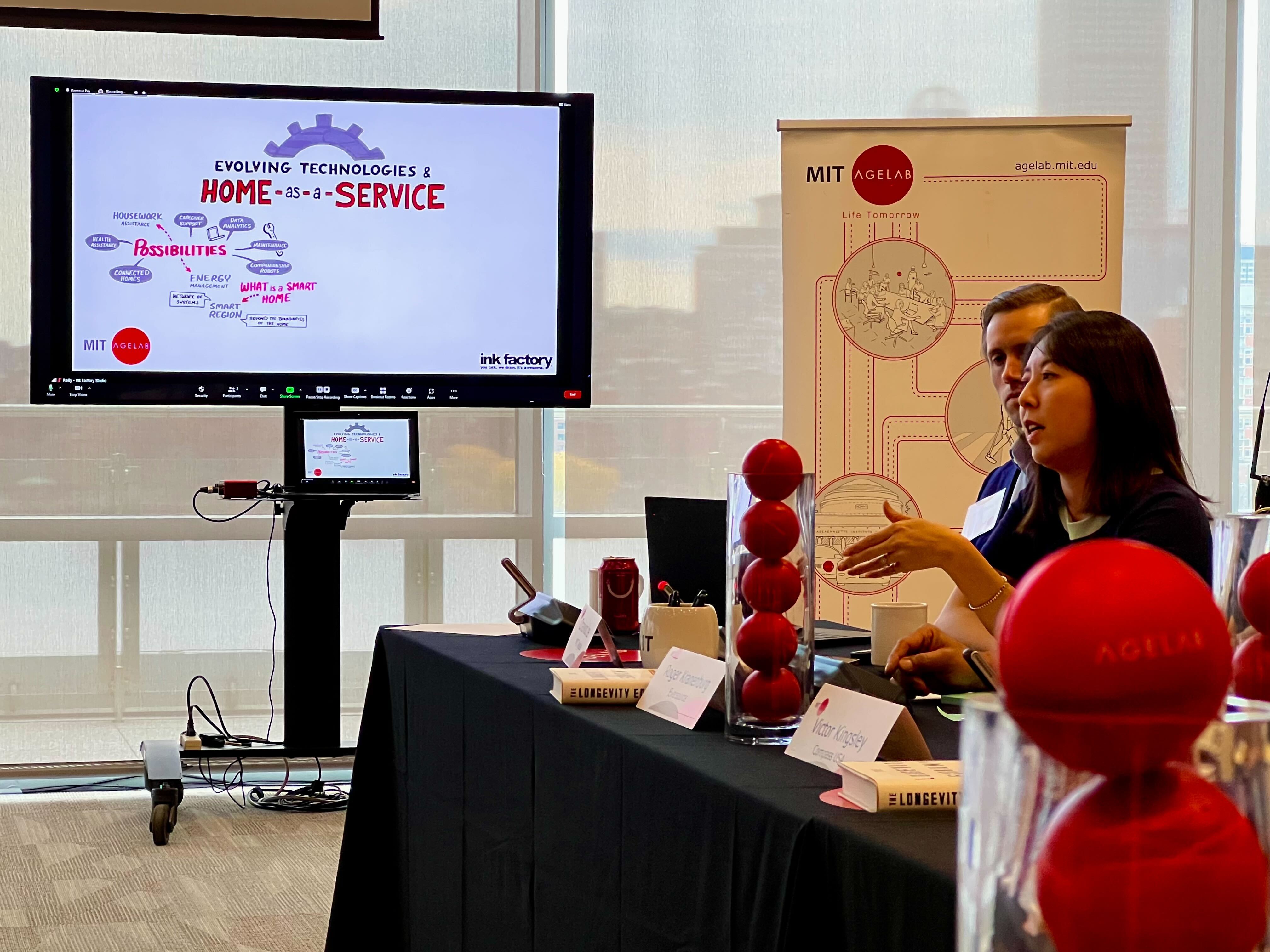AgeLab Hosts "HomeNEXT" Symposium to Discuss Future of Home
by Adam Felts
On December 6, 2022, the MIT AgeLab held a roundtable event to discuss trends - in lifestyles and preferences, demographics, and emerging technologies - that are shaping the future of home. Home is more than the place we live - it is a platform that reflects and reinforces our social and physical wellbeing as well as how we access a growing array of services and experiences.
HomeNEXT invited stakeholders from across industries to share their perspectives on the future of home. The future choices and strategies of these leaders and their companies will themselves shape tomorrow’s home - they are, in effect, inventing the future. HomeNEXT continues the line of inquiry conducted by the AgeLab's C3 Connected Home Consortium, which researches the development of novel and evolving home services and serves as a catalyst for organizations seeking to develop them. Industries represented at the event included residential construction, consumer technology, utilities, senior housing, private equity, and manufacturing and retail.
The event featured five thematic sessions: changing demographics in the home; trends in construction and building; home design and accessibility; the future rise of home “nownership;” and evolving home technologies and the idea of “home-as-service.”
Participants discussed shrinking household sizes and an aging population, and how these trends may affect the kinds of homes that people may want and need. These topics were highlighted by a presentation on changing demographics by AgeLab researcher Adam Felts. The discussion also encompassed questions about changes in cultural and social practices and how these shifts may have changed the layout of the homes of today, with the decline of spaces like the dining room and the sitting room.
Conversations also revolved around how homes can be designed to be inviting, engaging, and comforting as well as safe and accessible. Home technologies such as sensors, robotics, and AI may play a role in making homes safer and more responsive to the needs of their residents, as AgeLab Research Scientist Chaiwoo Lee highlighted in a presentation.
The roundtable also considered economic challenges in housing and changing consumer preferences. As construction falls short of housing demand, and residents’ needs are changing over time, there may be an opening for significant innovation in the kinds of construction that are pursued and dwellers’ needs that are addressed. Shifting away from the classical ideal of home ownership toward more flexible living arrangements may be a more popular trend in the future, noted AgeLab researcher and science writer Luke Yoquinto, although presently, at least, ownership remains the aspiration for most Americans.


